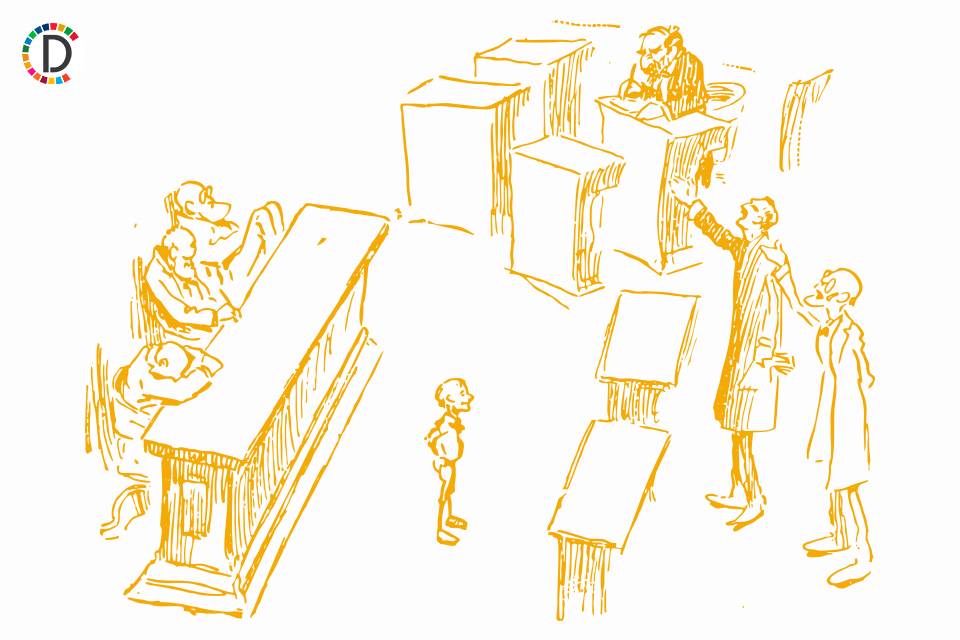Imran Khan moves high court against his 'hasty' indictment in cipher case

- Country:
- Pakistan
Pakistan's former prime minister Imran Khan Wednesday filed a petition in the Islamabad High Court (IHC) against his ''hasty'' indictment by a special court on charges of leaking state secrets and violating the laws of the country, urging it to declare the move ''illegal and unlawful''.
Khan, 71, and his close ally ex-foreign minister Shah Mahmood Qureshi, 67, were indicted by the special court judge on Monday during the hearing held in the Adiala Jail Rawalpindi on charges of leaking state secrets, in another blow to the jailed leaders who could now face a possible death sentence.
Khan, the chairman of the Pakistan Tehreek-e-Insaf (PTI), through his lawyer Salman Safdar filed a petition in the IHC, naming the state through the attorney general and Ministry of Interior Secretary Yousuf Naseem Khokhar as respondents.
He contended in the plea that there was a "visible haste" apparent in the actions of the judge. ''There seems to be a clear rush and haste on the part of the learned trial judge to hurriedly frame charges and conclude trial. This contention holds appeal especially in light of the fact that [the] challan has only recently been submitted in court, and there is no direction" for its early conclusion or for conducting day-to-day hearing by any superior court.
He further stated that the special court had framed charges under Section 5 of the Official Secrets Act, which was in "blatant and brazen violation of the law", adding the judge had committed a "gross illegality" by framing charges in the absence of "main documentary evidence".
Therefore, the petition urged the IHC to declare the "hasty exercise" of framing of charges to be "illegal, unlawful and against the settled principles of the Code of Criminal Procedure".
Khan was arrested in August after a case was filed against him for allegedly violating the Official Secrets Act by disclosing a secret diplomatic cable (cipher) sent by the country's embassy in Washington in March last year.
The Federal Investigation Agency (FIA) on September 30 filed the charge sheet against Khan and Qureshi who signed its copies.
The FIA invoked in the charge sheet sections 5 and 9 of the Official Secrets Act which may lead to a death sentence, or two to 14 years' imprisonment if convicted. Khan, who served as prime minister of Pakistan from August 2018 to April 2022, is accused of ''misuse the contents of the cipher'' to build a narrative that his government was ousted due to a foreign conspiracy hatched by the US, a charge denied by Washington.
The charge sheet added that Qureshi "aided and abetted" Khan and therefore was liable for the act in the same manner.
After indictment where the two pleaded not guilty, the court announced the formal trial on October 27 by summoning witnesses. Separately, an Islamabad-based anti-terrorism court (ATC) issued perpetual arrest warrants for nine leaders of Khan's party in a case relating to violence outside the Federal Judicial Complex (FJC).
Judge Abul Hasnat Zulqarnain, who is also the judge in the cipher case, issued the arrest warrants for Hammad Azhar, Shibli Faraz, Murad Saeed, Omar Ayub Khan, Ali Amin Gandapur and others.
The decision was taken by the court after the suspects' failure to appear before it despite being summoned several times. The court directed that since the suspects had been declared proclaimed offenders, they should be apprehended and presented.
Khan and several of his party leaders have been facing numerous cases since ouster of the party from power in April 2022 and later in the wake of May 9 violence.
More than 150 cases have been registered against Khan since his ouster from power in April last year.
Khan was ousted through a vote of no-confidence in April 2022. He was incarcerated on August 5 this year, after an Islamabad court sentenced him to three years in prison in the Toshakhana case. The PTI chief was lodged in the Attock District Jail to serve his prison term.
Later, his sentence was suspended by the Islamabad High Court, but then he was arrested in the cipher case and remained in the Attock jail on judicial remand. He was later shifted to Adiala jail.
(This story has not been edited by Devdiscourse staff and is auto-generated from a syndicated feed.)










